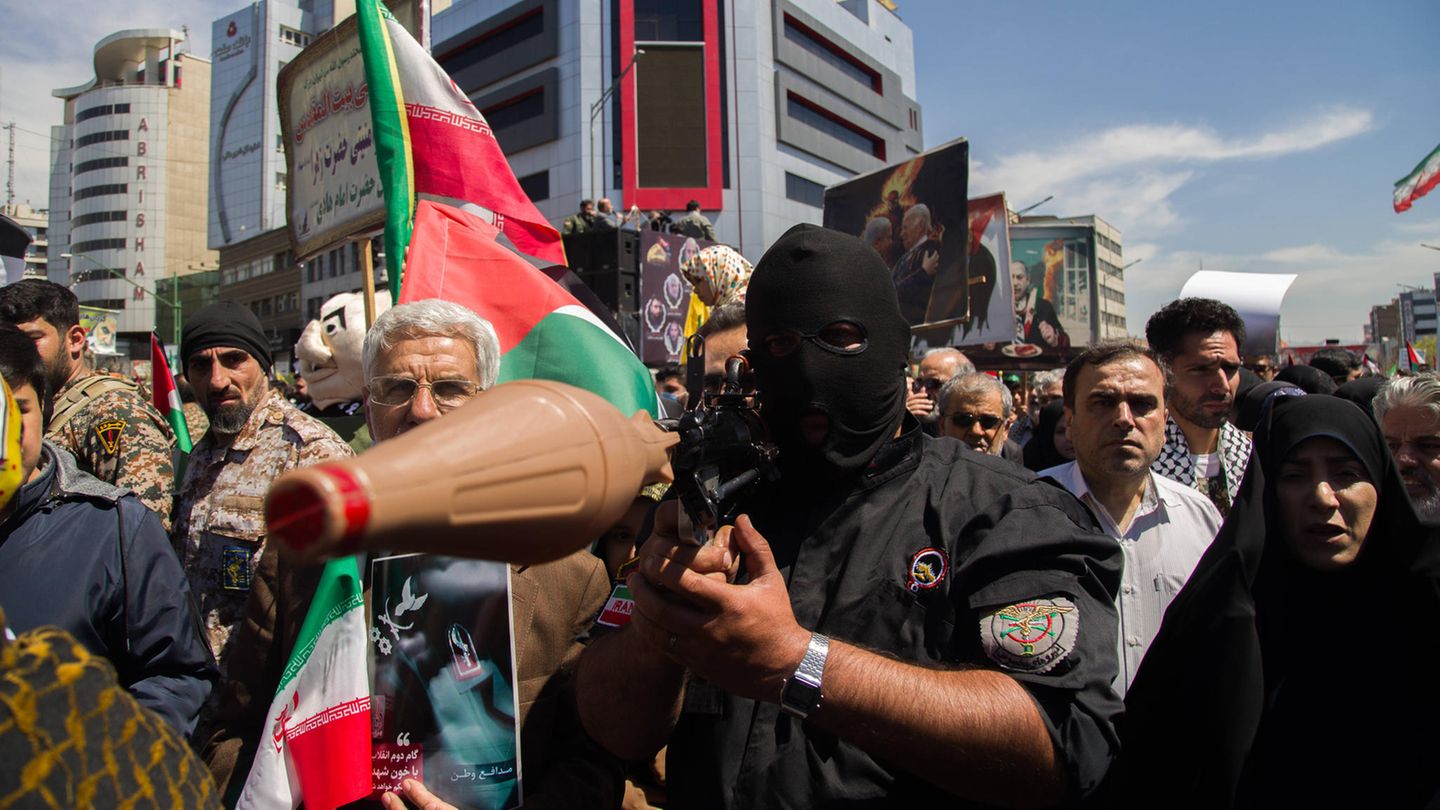analysis
The crisis in the Middle East threatens to escalate at any time. At the center: Iran and its proxies. The mullahs’ regime finances its terror not only with oil – but also with drugs.
According to reports, the Iranian regime executed at least 481 people last year for drug-related offenses. The leadership in Tehran is taking ruthless action against drugs – or so it seems. The paradox: According to Western security authorities, the country itself is heavily involved in the international drug trade. Iran depends on the billions in drugs. After all, this is how the mullahs’ regime largely finances its military apparatus – and thus also its aggression against Israel. The result: The Islamic Republic is described by investigators as a so-called “narco-state,” a country whose institutions are permeated by the illegal drug trade.
Senior Iranian officials part of drug trade
Iran has a long history of drug smuggling, as the country borders the world’s largest heroin producer: Afghanistan. The Taliban-controlled country produces the world’s opium, almost a third of which is smuggled through Iran. The majority of illegal trade to and from Iran passes through official ports and border crossings controlled by the Revolutionary Guard.
Confidential documents from the US embassy in Azerbaijan were published back in 2009. The revelations showed that Iranian security forces are actively collaborating with Afghan smugglers. Interrogations of Iranian smugglers in Azerbaijan also revealed that Iranian security forces are said to be actively involved in the transit and trafficking of drugs and in the operation of heroin laboratories.
Meth is taking over Iranian streets
Last year, the , reported that the drug meth was on the rise again in Iran. In 2020, Iranian authorities seized three times as much of the amphetamine as in the previous year. This meth boom can be attributed, among other things, to the discovery of a new plant-based raw material in Afghanistan. The report’s authors warned at the time that trafficking in the deadly drug could be a new source of income for the Revolutionary Guard.
But it’s not just the Iranian regime that depends on the international drug trade; its allies are also apparently deeply involved. One of these is Hezbollah, one of Iran’s proxy groups in Lebanon.
In the mid-2000s, Iran supplied Hezbollah with the drug Captagon, according to the Washington Post. This is described as increasing performance and concentration. Many of those who attacked Israel on October 7 are said to have used the drug beforehand.
The militia has also been producing Captagon in Syria for several years, in collaboration with the Assad regime. They were able to identify the Syrian president’s younger brother, Maher al-Assad, as an accomplice. He is said to command the Syrian army unit that enables the distribution and production of the drugs. In 2023, Captagon trading revenue was estimated at $57 billion. According to the government in London, 80 percent of the volume is produced in Syria and fuels Assad’s war machine.
The Houthis are also involved in drug smuggling
Another offshoot of the Iranian regime is the Houthis. This terrorist movement in Yemen also finances itself through the production and smuggling of drugs. Citing an anonymous senior Iranian official, the reports that the Islamic Republic supplies the Houthis with narcotics. They in turn then sold the product in the surrounding Gulf states. According to Yemen, the Arabian Peninsula state has become an important part of the drug smuggling route.
According to the , a US think tank, Iran also provided the Houthis with materials to make amphetamines last year. This means that Captagon can now be produced on a large scale in Yemen and smuggled into neighboring countries.
Captagon also found in Europe
The illegal drugs also find their way to Europe and Germany – so the addicts finance terrorist groups without knowing it. It was not until July 2023 that charges were brought against a suspected gang of Iranian drug traffickers. They are said to have smuggled 2,100 kilograms of heroin from Iran to Germany.
But Europe plays an important role not only as a buyer, but also as a stopover, especially in the Captagon trade. According to the, the drug is often repackaged in Europe to make smuggling easier. The actual destination of the deliveries are countries such as Saudi Arabia and Jordan.
Drug money finances the fight against Israel
The drug trade via Iran is not only a problem for Europe, but actually also for the Islamic Republic itself. Export success or not – the drugs also pose huge problems for Iran itself. According to the, the dependency rate in Iran was up to 2.8 percent in 2019 – one of the highest in the world. An estimated 81 million Iranians are addicted to drugs. For comparison: there are around 160,000.
Ilan Goldenberg is a foreign policy and defense expert. He sees the dependency problem in Iran as a solution to combat the Revolutionary Guard’s drug trafficking. In a report by the think tank, he explains that the vast majority of Iranians know nothing about the Revolutionary Guard’s involvement in the international drug trade. So education is the solution. But even if it does, those in power have proven this more than once in recent years in their dealings with the women’s rights movement. It therefore seems rather unlikely that the people can force the Revolutionary Guards to do anything when it comes to drug trafficking.
Currently, narcotics trafficking is not covered by Western sanctions against Iran. , US diplomat and terrorism expert, draws a bitter conclusion: drug trafficking is one of the Revolutionary Guards’ main sources of income. As long as the Revolutionary Guards are not stopped in their illegal activities, the drug trade will continue to finance the aggression against Israel.
Further sources: ; ; ; ; ;
Source: Stern
I have been working in the news industry for over 6 years, first as a reporter and now as an editor. I have covered politics extensively, and my work has appeared in major newspapers and online news outlets around the world. In addition to my writing, I also contribute regularly to 24 Hours World.




